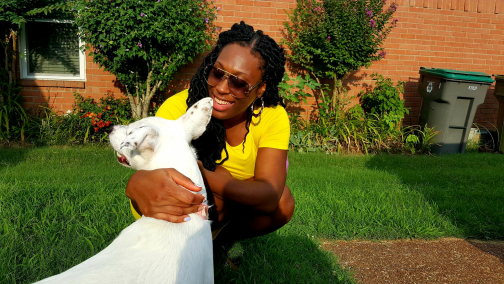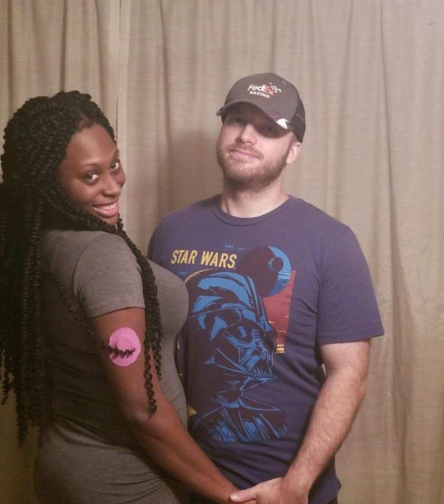Diabetes Support Helped Me Confront Trauma
TRIGGER WARNING: This story contains sensitive content regarding sexual assault.

My name is Shanerica Churchill and I’m a 26-year-old living with type 2 diabetes in Memphis. I was diagnosed with type 2 diabetes on August 6, 2018. On the day of my diagnosis, I almost went into a diabetic coma. Thankfully, my husband, Jeff, took me to the hospital where I was able to be treated. However, I was shocked when the doctors told me I’d had diabetes for quite some time and revealed my A1c was 12.6 percent. At the time, I was scared and didn’t feel normal anymore. The hospital staff gave me information on managing diabetes such as books and videos on diets and using insulin.
When I was released from the hospital, I was afraid I wouldn’t be able to manage my diabetes. The disease runs in my family on my mom’s side. My husband made me realize I wasn’t alone and helped me begin to adjust. Then, my job referred me to a dietitian who helped me with healthy eating habits. Shortly after, I was referred by my primary doctor to an endocrinologist who gave me specialized attention and helped me gain deeper knowledge about diabetes. My endocrinologist also referred me to a diabetes education class, too, to receive extra support.
Support from my Healthcare Team and Husband Were Everything
All this support from my husband and my healthcare team made the difference in my care. This support helped me realize I wanted a healthy lifestyle, but I knew I needed to start off small and started taking Zumba and kickboxing classes. Truthfully, I hated working out but these activities were fun and boosted my confidence. I love working out now—it feels great. Even better, my husband decided to join me on my health journey. We take our dog for walks for exercise. We both joined a gym and started to lose weight and gain muscle—which is beneficial for people with diabetes.
Having a supportive partner throughout this process ha s made a world of difference and has strengthened our relationship. I know some of you may be wondering how to get your partner on board with your healthy lifestyle, especially if you’re making these changes after a diabetes diagnosis. My primary piece of advice is to talk to your partner about your desire to change your lifestyle and why. For me, I told my husband I wanted us to be healthy so we can both grow old together and live long, healthy and enjoyable lives.
s made a world of difference and has strengthened our relationship. I know some of you may be wondering how to get your partner on board with your healthy lifestyle, especially if you’re making these changes after a diabetes diagnosis. My primary piece of advice is to talk to your partner about your desire to change your lifestyle and why. For me, I told my husband I wanted us to be healthy so we can both grow old together and live long, healthy and enjoyable lives.
Working Through Trauma and Learning How to Thrive
I’m learning about the relationship between past trauma and diabetes in my life. I’m a rape survivor who struggled with anger management, as well as having a tumultuous relationship with my parents. If I were going to focus on my physical health, I needed to do the same with my mental health. Though little is known about the relationship between diabetes and psychiatric conditions, studies suggest stress, trauma and other depressive symptoms can contribute to decreased control over blood sugar, increase anxiety and promote negative emotions towards diabetes care. Increased stress can also inhibit insulin production and prevent it to be used by the body.
Therapy has shaped me mentally and emotionally because I have a different outlook on life and changed my attitude from when I used to feel like I wasn’t good enough. Today, I feel strong, confident and have a much more positive view of myself.
As of July 2019, my A1c has dropped from 12.6 percent to 4.6 percent. I feel like it’s incredible to achieve that goal in less than a year after my diagnosis. But my work isn’t done just yet—just the opposite; I’m just getting started. I hope to inspire others who’ve dealt with trauma and live with diabetes to get the care they need and deserve. Employers can be essential in this effort by providing an onsite therapist or counselor to help employees cope with issues that impact all aspects of our lives. I’m a strong believer that no matter what we’re going through, we shouldn’t let it consume or control us. Instead, we can be a positive light for our family, friends and ourselves.
Thank you, Beyond Type 2, for letting me share my story. I hope this inspires anyone who reads it.





